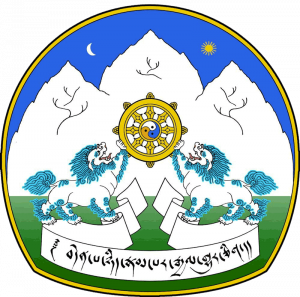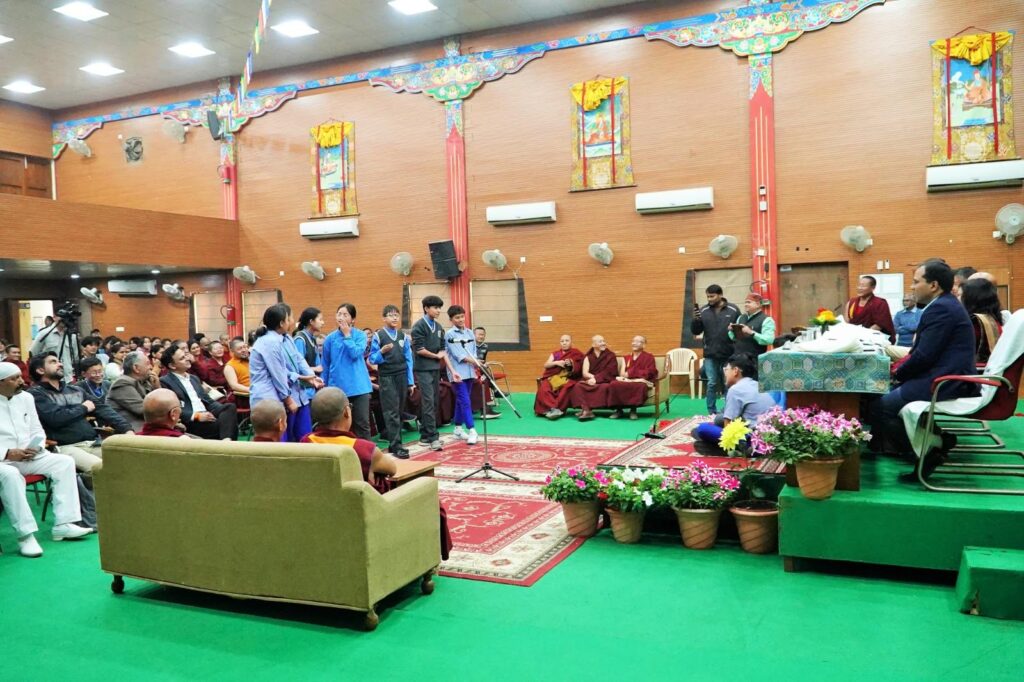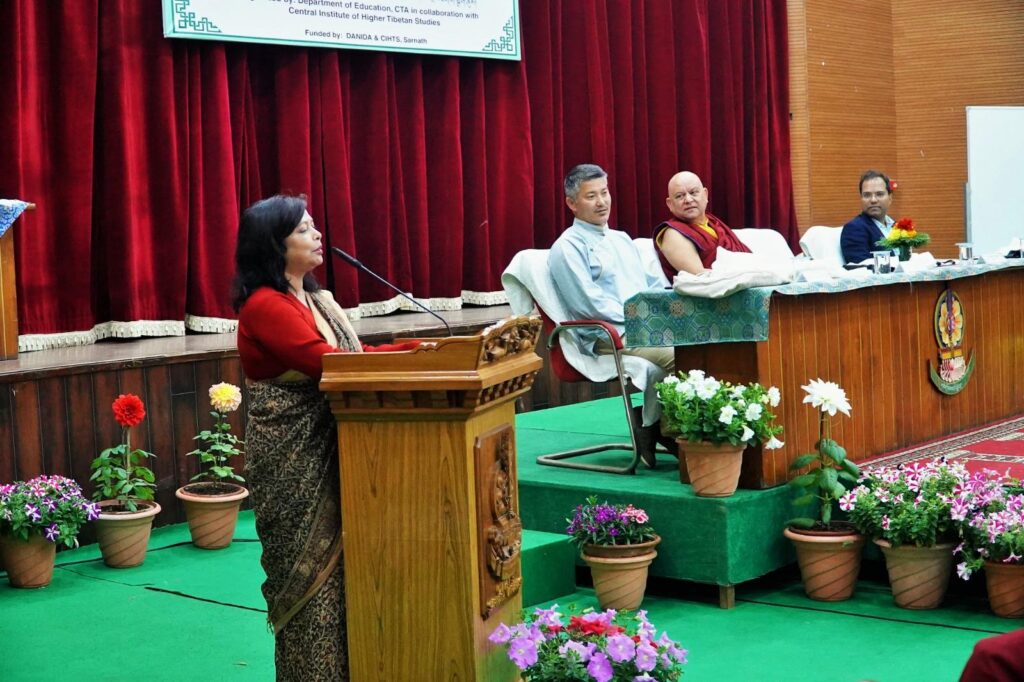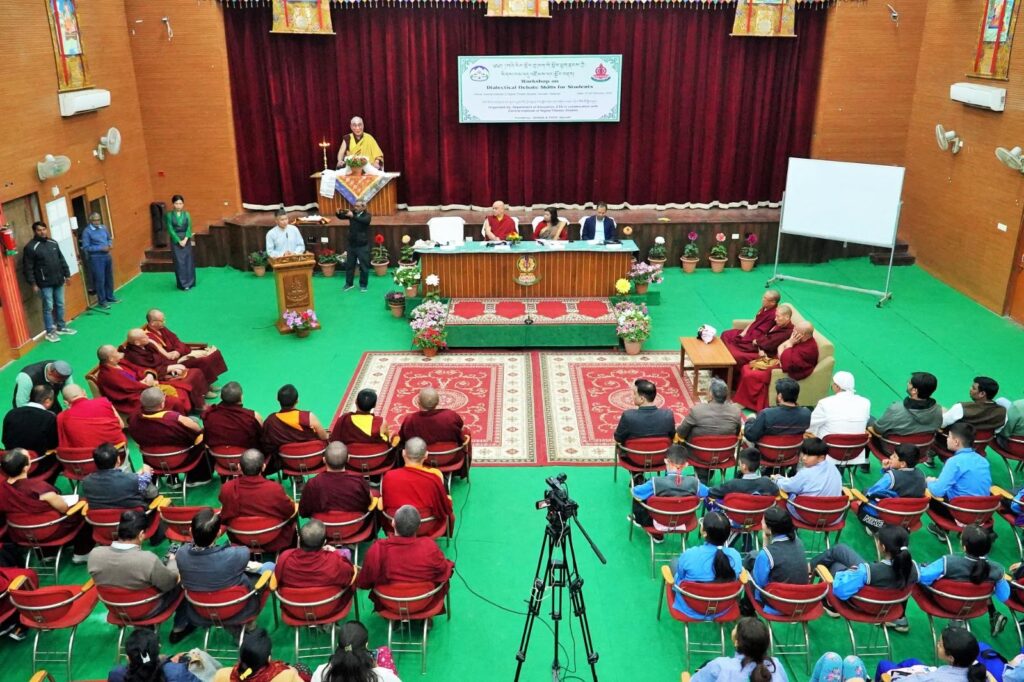Varanasi: The Department of Education (DoE), Central Tibetan Administration, in collaboration with the Central Institute of Higher Tibetan Studies (CIHTS), organised a Workshop on Dialectical Debate Skills for Students at the CIHTS from 17 to 29 February 2024.
Presided over by Wangchuk Dorjee Negi, the Vice Chancellor of CIHTS, Registrar Sunita Chandra, and Deputy Registrar Himanshu Pandey, the inaugural session of the workshop commenced on 17 February with the attendance of Tibetan Education Officer Ngodup Tenpa (DoE) and 43 participating students and two Tibetan Buddhist philosophy teachers from Sambhota Mewoen Tsuglag Petoen School and Selakui Tibetan Children’s Village School.
In his opening remarks, Tibetan Education Officer Ngodup Tenpa introduced the objectives of holding this workshop, which aimed to promote the preservation of the Tibetan language, culture and religion. He said that imparting students with traditional dialectic education to enhance analytical ability was time and again advised by His Holiness, and the Education Department has since organised various programmes to comply with His Holiness’ noble guidance.
Deputy Registrar Himanshu Pandey delivered a welcome speech at the opening ceremony and highlighted the crucial roles of dialectic education in the academic field for student’s cognitive development. He mentioned that CIHTS intends to include dialectic as a part of the syllabus for the institution’s teacher’s course (B.Ed), and a proposal was forwarded to the National Education Council, to which the latter commended the initiative.
In her talk, Registrar Sunita Chandra lauded the participants for their active engagements and for displaying a keen interest in dialectic disputation as they presented dialectic debate during the inaugural ceremony. Like Buddhist dialectic, “Shiva Purana is a similar ancient text containing argumentation of reason and logic between Shiva and Parvati. And hence, it is of utmost importance for us to study and analyse the ancient texts rather than simply believing.”
The chief guest of the event, Vice Chancellor Wangchuk Dorjee Negi, shed his light on the significance of education in an individual’s life and approaches to acquiring it. In particular, given the vast number of subjects for learning, he underscored the participants’ need to be selective in learning subjects that are beneficial for their interests and their community. He urged participants to study the Tibetan religion and language properly to preserve and promote the Tibetan heritage.
The session was also addressed by the Buddhist philosophy teachers before concluding.




